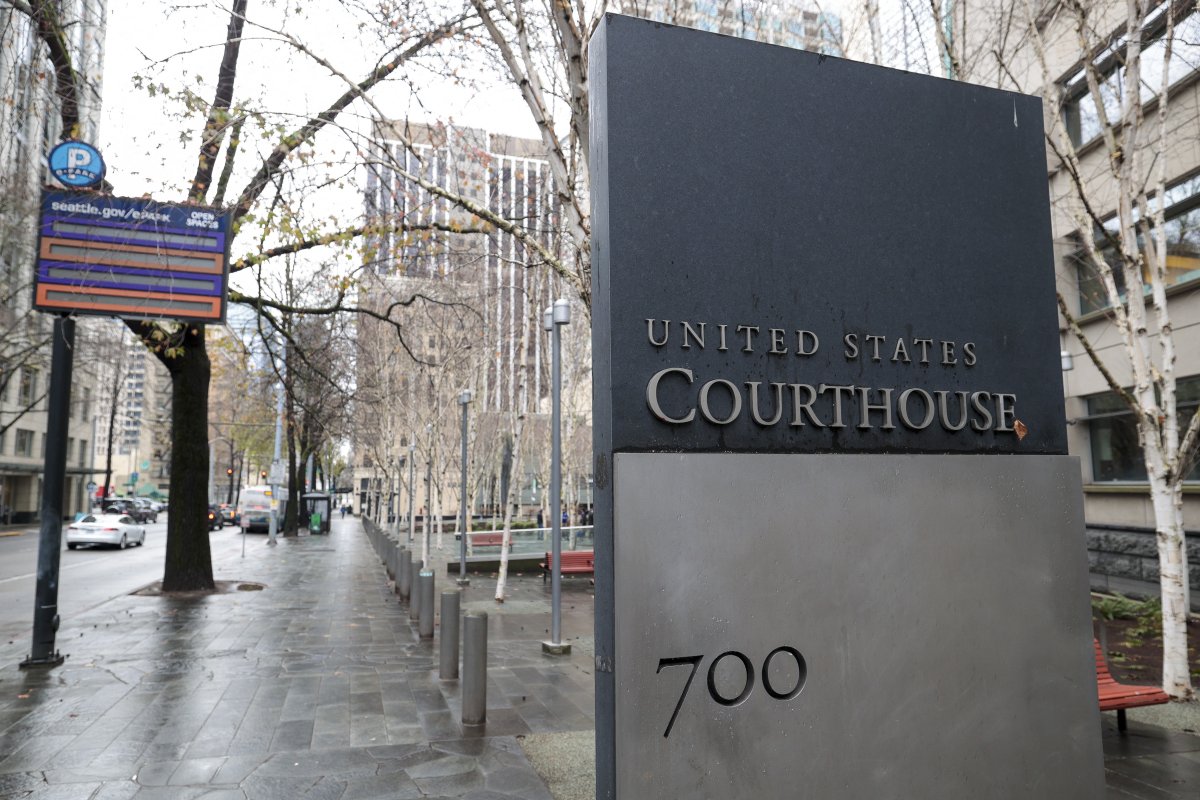When I was a kid, my mom tried to ground me for three weeks for staying out too late. Thinking I was clever, I asked her, “You and what army are going to enforce this?” She responded by tripling my grounding, teaching me a hard lesson: she was the (Eastern European, in this case) army at issue. I learned that defying authority wasn’t just about getting away with something in the moment—it was about whether the person on the other side had the power, the will, and the means (including the power of the purse) to make their rules stick.
But if a mother grounds her child for three weeks but has no real way to enforce it, extending the punishment to nine weeks doesn’t suddenly make it more enforceable. If the grounding isn’t backed by any real control, the length of the punishment is more of a statement than a true deterrent.
Fast-forward to today, and I can’t help but see eerie parallels between my childhood defiance and the current constitutional crisis brewing in the United States. Except this time, it’s not about curfews and stubborn kids—it’s about the very rule of law. President Donald Trump is playing a constitutional game of chicken with the courts, and at the end of this standoff, I fully expect him to turn to the Supreme Court and ask, straight from his teleprompter, “You and what army will enforce this?”

JASON REDMOND/AFP via Getty Images
Trump has spent years testing the limits of the law, pushing boundaries in ways that no modern president has dared. From ignoring congressional subpoenas to refusing to concede the 2020 election, he has treated legal constraints as mere suggestions rather than enforceable mandates. And now, as he faces a series of criminal and civil cases, the ultimate question is looming: What happens if he simply refuses to comply with the rulings against him?
The American legal system is designed with the assumption that those subject to its rulings will, for the most part, follow them. Courts issue orders, and people—especially high-ranking officials—are expected to abide by them. But what happens when someone like Trump, who commands the loyalty of millions and wields influence over large swaths of the government, refuses to play by those rules? We are rapidly approaching a moment where we may find out.
This crisis is no longer just about Trump himself. Vice President JD Vance, Elon Musk, and others in the Trump administration are openly challenging the centuries-old power of the nation’s judiciary, foreshadowing a possible constitutional breakdown. It’s not simply that the new administration has flouted a raft of federal statutes and prompted a flood of legal challenges. It’s that some of Donald Trump’s top advisers have cast doubt on whether rulings on those lawsuits would even constrain the president.
There are already signs that some judges’ orders have been disregarded. On Monday, a federal judge in Rhode Island found that the administration has violated the “plain text” of his earlier order unfreezing billions of dollars in federal aid. The judge directed funding to be reinstated to environmental, health, and other programs that had been cut off. This type of outright defiance of judicial authority is not just alarming—it’s a direct assault on the foundational principle that the rule of law applies to everyone.
Trump’s personal legal troubles suggest his broader strategy. He has been indicted multiple times on serious charges, ranging from election interference to mishandling classified documents. At every turn, he sought to delay, obstruct, and discredit the judicial process. In other words his plan is to make the legal system bend to his will through sheer force of defiance. And if that fails, force the courts into an existential crisis by daring them to enforce a ruling against him.
The question of enforcement becomes critical. Let’s say a court rules that Trump must be detained for contempt or that he must pay a massive fine. What happens when he refuses? Does the Justice Department—which Trump has already worked to bend to his will—send federal agents to arrest him? What if local law enforcement refuses to cooperate? What if his supporters rally en masse, creating a situation where any attempt to enforce the ruling risks violent unrest? These are no longer far-fetched hypotheticals. We saw on Jan. 6, 2021, what happens when Trump calls his supporters to action against what he claims is an unjust legal process. We would be foolish to assume that he wouldn’t do it again.
This is how democracies crumble—not in one dramatic moment, but in a series of calculated challenges to the rule of law, each one testing whether institutions have the power to enforce their authority. Trump’s strategy is to create a scenario where the courts either back down or risk pushing the country into chaos. If they back down, he proves that the law does not apply to him. If they push forward, they must be willing to see their rulings through to their ultimate consequences—no matter how dire those may be.
The Supreme Court, for all its power, does not have an army. It relies on the executive branch to enforce its rulings. This was the lesson of Brown v. Board of Education, where federal troops had to escort Black children into schools because local authorities refused to comply. It was the lesson of the Watergate scandal, where Nixon ultimately resigned rather than defy a Supreme Court order to release tapes of his conversations in the Oval Office. But what if we are in a new era, one where Trump and his allies are willing to push past those old boundaries?
The courts may find themselves in the same position my mother did all those years ago, facing an unrepentant rule-breaker who dares them to do something about it. If Trump refuses to comply with a Supreme Court ruling, the burden shifts to those in power to enforce the law. And that’s where the real test begins. Are our institutions strong enough to withstand this challenge? Will law enforcement uphold their oaths to the Constitution, or will they crumble under political pressure?
Will elected officials, including Republicans who still claim to believe in law and order, have the courage to say that no one—not even a former president—is above the law?
A Pulitzer Prize-nominated writer, Aron Solomon, JD, is the Chief Strategy Officer forAMPLIFY. He has taught entrepreneurship at McGill University and the University of Pennsylvania, and was elected to Fastcase 50, recognizing the top 50 legal innovators in the world. Aron has been featured in Newsweek, The Hill,, Fast Company, Fortune, Forbes, CBS News, CNBC, USA Today, ESPN, TechCrunch, BuzzFeed, Venture Beat, The Independent, Fortune China, Abogados, Today’s Esquire, Yahoo!, ABA Journal, Law.com, The Boston Globe, and many other leading publications across the globe.



















